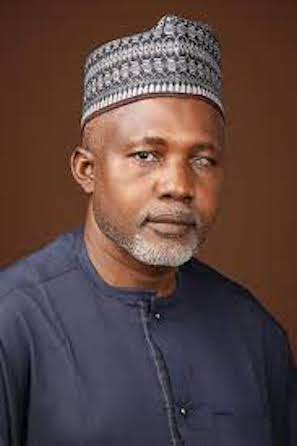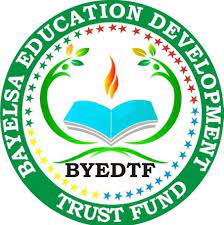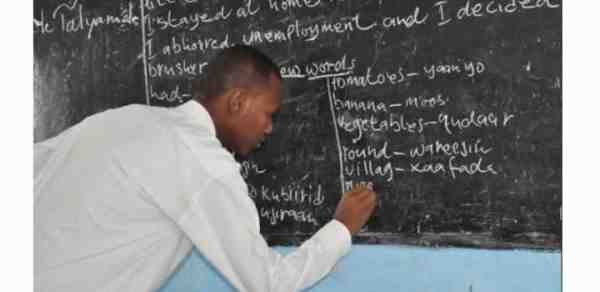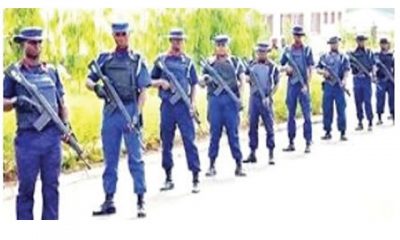Education
FG Approves Partial Reopening of Schools, Inter-state Movement

By Mathew Dadiya, Abuja
The Federal Government has announced a partial reopening of schools but only pupils in Primary 6 and students in JSS 3 and SS3 are allowed to resume to prepare for their examinations.
But all schools including primary schools and daycare centres across the nation remain closed until further evaluation while arrangements will be made for students taking NECO, WAEC and other exams.
The Coordinator of the Presidential Tasks Force (PTF) on COVID-19, Dr.
Sani Aliyu announced the directives on Monday during the National daily briefing in Abuja.Aliyu emphasized that the use of face masks remains mandatory, adding that in government and commercial premises, “no mask, no entry.
”He said: “For educational activities, all day cares and primary schools are to remain closed until further evaluation. Schools are encouraged to continue with e-learning and visual teaching but pupils may proceed to take the national common entrance as soon as is feasible, provided there is compliance with issued non-pharmaceutical interventions.
“For secondary and tertiary institutions, all schools remain closed till further evaluation. Arrangements are to be made for exiting graduating students in JSS3 and SS3 to resume at both boarding and day schools as soon as possible for intensive revision exercises.
“All educational establishments are to conduct exhaustive reviews to ensure compliance with the issued guidelines on COVID-19 before they open up for this purpose and just to clarify they will open up only for the purpose of exiting students.
“Arrangements are to be made for students taking part in the Natural Area Protection Tax Exemption Program (NAPTEP), Business and English Certification (BEC) exams, West African Examinations Council (WAEC) examinations, National Examinations Council (NECO) and sub-exams respectively.
All schools must comply with the six recommended steps and required measures to be issued by the Federal Ministry of Education before an institution is reopened in the timeline to be provided.”
Chairman of the Task Force on COVID-19 and Secretary to Government of the Federation (SGF), Boss Mustapha, explained why some categories of schools had to be reopened.
He said: “It is not an easy decision but we are mindful of the fact that even prior to COVID-19, we have 15 million children out of school.
“So what do we do with those that are in school, do they constitute part of this now or do we do something. We measured the risk and see how best we can help the graduating ones. We are not talking about everybody going back to school, we are talking about the graduating classes, the primary six, if we don’t do something about them, they can’t proceed to secondary school. So, they would not lose a year.
“The same thing with JSS3, if you don’t do anything, because they can only qualify to move if they pass a certain examination. So, if you stop them, it means we would not have the prospect of people graduating.
“The same with SS3, there is a certain examination that qualifies you to go into the university, that is WAEC, in addition to JAMB or whatever qualifying examination that you have.
“WAEC is not under our exclusive control. The five Anglophone West African countries constitute WAEC. If other four are ready and we start the examination say in the month of August, Nigeria cannot isolate itself. It means that those that are to graduate to the universities next year would not be able to graduate.
“So, we say these classes that would be graduating, can we do something to accommodate them in such a way that they would just show up for the purposes of the examination.”
Funerals, weddings reduced to 20 people
The National Coordinator also said attendance of funerals and weddings have been reduced to 20 people including family members.
Aliyu said: “So I’ll be taking you through some of the changes, as the chairman said we are extending Phase 2 of the response with slight modifications.
“The PTF has identified certain areas of concern that require attention and which will undergo a further revision.
“These are particularly areas involved with international air travel, entertainment activities, educational sector, services and public and private sector services.
“The PTF in the past has stated that the aim of phase two was to sustain the gains from earlier steps and faces in terms of the pandemic control.
“It’s also important to state that we relaxed the response partly to enable additional sectors of the economy restart activities.
“In this regard we seek to consolidate the gains in the areas of the economy while trying to ensure better compliance with the health-based response.
“Specifically therefore, the following areas will be sustained and modified under the extended phase of the eased locked down as approved by Mr. President:
The current nationwide curfew would remain. We will maintain restrictions on mass gatherings and sporting activities.
“Domestic Aviation Services will recommence. Movement across state boundaries will be allowed but only outside curfew hours.
“Federal and state government offices will maintain their current timing with only essential staff allowed at the same level of grade level 14 and above resume work.
“The use of face masks remains mandatory and we will be enforcing this at all levels including linking up with state governments.
“Access to government and Commercial premises will not be allowed if you are not wearing a face mask, in other words no mask no entry, no mask no services will be provided in government premises and Commercial premises.”
The Coordinator also explained in details some of the areas that not much has changed.
He said: “So the curfew for instance remains at 10 p.m. to 4 a.m. nationwide. People are allowed to go out for work and to buy food and exercise as well as continue to move between local governments, especially in areas that are not high burden local governments, but we still strongly recommend avoiding unnecessary contact with people.
“For the aviation industry, the aviation industry is allowed to resume domestic operations as soon as practicable in line with existing international and local guidelines on covid-19.
“For Interstate travel, movement across state borders will be allowed only outside curfew times effective from the 1st of July to allow the industry to prepare over the next 24 hours.
“In particular, we expect the transport industry to adhere to the Federal Ministry of Transportation safety protocol and guidelines that will be released, specifically in relation to parks and terminals that will be restricted access with disinfection and sanitization. Waiting area for passengers must have social distance in measures, there has to be posters and notices on conduct of persons, temperature checks, if you are not wearing a mask, you will not be allowed entry into the parks and terminals.
“We also expect transporters to arrange for crowd control, buses should have a maximum of 50 percent capacity each bus trips.
“We strongly urge windows to be kept open particularly for short trips and face mask is mandatory.
“State governments through their commissioners of transport shall undertake inspection of facilities and confirm compliance as a precondition to resumption of interstate travel and non-compliance with the guidelines would result in withdrawal of permission to operate Interstate mass transit. The PTF expects this to be enforced at the state level.
“For Interstate travel, we will maintain the occupancy level for buses to 50 percent and two passengers for taxes, but we will restrict movement in high burden-local government areas to essential travel only. This will be part of the hotspot strategy that will be introduced.
“For industry and labour, they will maintain normal working hours based on the curfew arrangements apart from government offices that will have a separate working hour schedule and offices must maintain working at 75 percent capacity.
“For banks and financial institutions, they will operate normal working hours with no change. For government offices there is no specific change, working hours remain 9 a.m. To 2 p.m. from grade level 14 and above.
“But personalized services, mechanics, artisans, hair salons etc who own their workshops, workstations and can clearly adhere to non-pharmaceutical interventions will be permitted to operate as normal.
“For markets, there is no specific change to what we already have in Phase 2 and this will be driven by local authority arrangements.
“For hotels, restaurants and eateries there is no specific change. Hotels must observe all mandatory non-pharmaceutical interventions, restaurants to remain closed for eating with strict cleanliness guidelines except for restaurants that are serving Hotel residents.
“Bars, gyms, cinemas, event centers and nightclubs remain closed and this will be enforced.
For churches and mosques, no specific change phase 2 remains.
For recreational parks /communal Sports, restriction on communal Sports remains as well as the restriction on recreational parks until further evaluation.
For funerals and weddings no particular change, funerals and weddings to be limited to 20 people including close family members.
“In summary, the PTF has recommended to Mr. President and Mr. President has approved the extension of phase 2 of the response with minor modifications.
“We are requesting for full compliance by the general public. We have to get this right and this time around we really need to stop playing Russian roulette with our life because if we continue to expose ourselves to covid there’s no doubt that people will die.
The Presidential Task Force on Covid-19, therefore, called on all political, community and religious leaders to continue to support them to make sure that the communities are aware of the risks of the viral pandemic and improve the level of compliance.
Education
NBTE Begins Accreditation of New Courses in Federal Polytechnic Wannue

The National Board for Technical Education (NBTE), has commenced accreditation exrceise for six new courses at the Federal Polytechnic, Wannue, Tarka Local Government Area of Benue.
Mr Ogah Ngbede, NBTE’s Director of Polytechnics Programmes, disclosed this on Thursday during the ongoing exrceise in the institution.
According to Ngbede, all the courses would be inspected before making a pronouncement.
He said that the exercise would last for two days, after which its decision would be made known.
He added that the institution secured full accreditation for two out of the five courses it presented to NBTE in 2023.
“We are here to look at the claims made by the institution because they have requested to commence some new programmes.
”We are here to ensure that the right thing is done and ensure that this polytechnic is not regarded or treated as a second grade institution,”he said.
The director, who decried poor funding of polytechnic education in Nigeria, called on goverment at all levels to ensure adequate funds were allocated to the education sector.
“The major problem affecting polytechnic education in this country is finance.
”Let me use this opportunity to call on the government at all levels to inject more funds into the polytechnic system.
“Technical education is a low hanging fruit from which this country can use to escape poverty; technical education all over the world has become a major currency with which nations are using to escape poverty.
“When we pay adequate attention to our polytechnics, students that graduate from these institutions can hit the ground running because they have the necessary tools to be job providers and not job seekers”, he said
Earlier, the Rector of the institution, Dr Tyover Ashinya, listed the courses presented for accreditation to include, Business Management, Public Administration, Agricultural Technology, Electrical Engineering, Computer Engineering and Computer Science
He said that the institution has the adequate manpower and infrastructures to effectively run the six new courses.
”We are willing to improve on all necessary areas that need improvement to enable these new courses secure full accreditation,”the Rector said.
Reports says that the institution was established by the Federal Government in December 2020. (NAN)
Education
FG Set to Revolutionise Educational Infrastructure with N98.2 bn – Edun
By Tony Obiechina, Abuja
The Federal Government has announced the ground-breaking ceremony for the building of a 1,600-capacity student hostel in Akwa Ibom State.
This project is part of a N98.2 billion nationwide initiative to enhance educational infrastructure.
The Minister of Finance and Coordinating Minister for the Economy, Wale Edun who disclosed this said the Federal Government, in partnership with states and the private sector, will construct 24 housing facilities across 24 institutions, each with 1,600 bed spaces.
According to a statement by Mohammed Manga, Director of Information & Public Relations, the initiative is aimed at addressing a significant student accommodation deficit, enhancing student performance and well-being.
It is also a testament to the sophistication and depth of our local capital marketsRepresented by the Ministry’s Permanent Secretary Special Duties Mr Okokon Ekanem Udo, the Minister added that
“this initiative invests in our youth and educational infrastructure, ensuring that tomorrow’s leaders have the resources and environment they need to thrive.
“It also demonstrates the private sector’s willingness and capacity to partner with government to deliver critical infrastructure projects across all geopolitical zones, to reduce the housing deficit*, Wale Edun said.
Education
FG in Land-Swap Deal to boost Literacy Education in Kano

By Eddy Ochigbo, Abuja
In a renewed move to enhance sustainable growth in education, the federal government has concluded plans to embark on 13 new infrastructure projects at the National Mass Literacy and Adult Education Commission (NMEC), Kano Centre, through Public/Private Partnership (PPP).
Minister of State for Education, Dr Yusuf Sununu, disclosed this on Tuesday at a stakeholders’ engagement and sensitisation meeting in Abuja to kick start the proposed land-swap deal for the development of critical infrastructure in Kano.
According to him, the public private partnership project would mark a turning point in literacy education of adults across the country, regretting that it was unfortunate that Nigeria still had a significant number of adults who are either illiterate or have limited literacy skills.
This major challenge, he said hinders the nation’s overall development and progress.“This is another milestone and progress in the ministry, and we will be having it with private public partnership, and this is also part of President Bola Tinubu’s eight-point agenda.Government cannot do it alone and everyone of us needs this as stakeholders to bring development and move the country forward. We have a regulation guiding us which we will use to ensure that the plots that have laid fallow over the years are put to best use in our time,” he said.
While stressing the need to regulate teaching in the country, specifically to guide teaching and teaching practice, Sununu revealed that the 13 new infrastructure projects – semi-detached two and three bedroom bungalows, state-of- the-art classrooms, clinic, library, hostels, a lecture theatre and recreational facilities, among others – would change the fortunes of the National Mass Literacy and Adult Commission, Kano centre, which has been lying fallow in the last 39 years.
“The projects would not only enhance learning at the centre, but would also provide a conducive environment for entrepreneurship in the centre. The Kano Centre of the National Mass Literacy Centre plays a crucial role in addressing this challenge by providing literacy education to adults across the country.
However, to effectively fulfil its mandate and reach more people, it is essential to have the necessary infrastructure and resources in place. This is where the proposed development of 13 critical infrastructures through land swap Public-Private Partnership comes into play. Through this innovative approach, we will be able to leverage the expertise, resources and capabilities of the private sector to create modern and functional learning facilities for the Centre,” Sununu enthused.
On his part, the Executive Secretary, NMEC, Prof. Simon Akpama, expressed confidence that through collective efforts and sustained collaboration between the public and private sector the growth of education would make a significant impact on the lives of a cross section of Nigerians. He said the initiative would also empower youths and adults to contribute their quota to national development.
Meanwhile, DAILY ASSET gathered that MASLAHA Homes and Development Limited, a leading Kano-based Real Estate company, which proposed the land-swap deal, has the capacity to design, finance and build the 13 new critical education infrastructure and assets for the Kano Centre of National Mass Literacy within the scheduled timeframe.




























